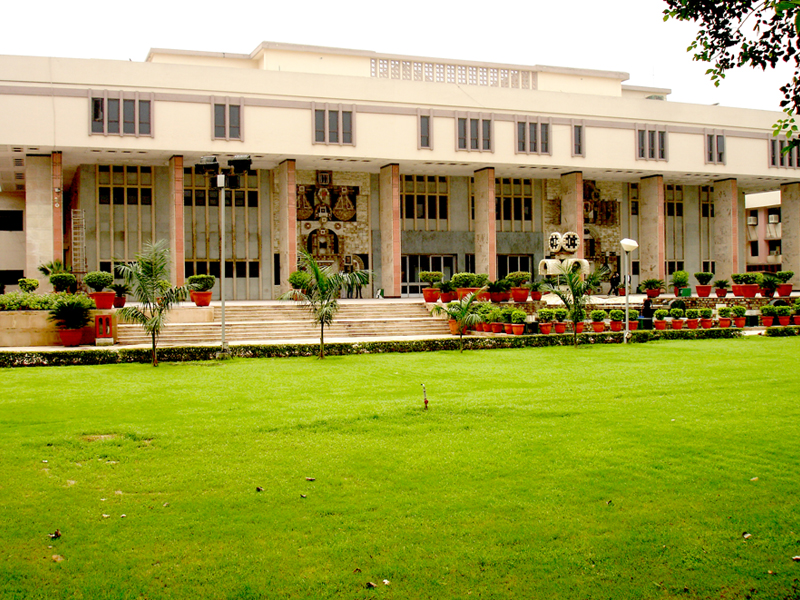Funds raised for a planned crime cannot be classified as “proceeds of crime” under the PMLA, according to the Delhi High Court, which has granted bail to members of the PFI.

The Delhi High Court has granted bail to members of the Popular Front of India (PFI), a banned Islamic political group, in a money laundering case. The accused PFI members had submitted Bail Applications to the Court regarding charges under Sections 3 and 4 along with Section 70 of the Prevention of Money Laundering Act, 2002 (PMLA). Justice Jasmeet Singh noted that to apply section 3 of PMLA, there must be proceeds of crime linked to criminal activity. The Enforcement Directorate (ED) claimed that the funds raised by the petitioners were used for illegal activities, but the court stated that this does not fit the definition of proceeds of crime under PMLA.
Senior Advocate Shadan Farasat, along with Advocates Satyakam and Adit S. Pujari, represented the Petitioners, while Special Counsel Zoheb Hossain represented the Respondent. All accused were arrested in 2022. According to the ED’s complaint, Parvez Ahmed served as the President of the Delhi State Unit of PFI from 2018 to 2020 and was said to be involved in anti-CAA-NRC protests in Delhi. These protests led to the riots in February 2020, during which he and other PFI members were arrested. He acknowledged that as President, he managed donation collections and issued receipts to contributors. Mohd Ilyas, the General Secretary of the Delhi State Unit of PFI since November 2018, was also accused of participating in the anti-CAA protests that led to the riots.
Ilyas, in his statement under Section 50 of PMLA, mentioned that the funds were mainly raised through donations from the Delhi branches of PFI. He deposited the collected cash at PFI’s Shaheen Bagh office with either the manager or the accountant. The complaint also noted that Abdul Muqeet has been the Office Secretary of the Delhi State Unit of PFI since 2017. During the investigation, it was found that he and his associates issued fake donation slips for PFI in the names of residents from Mullah Colony, Gharoli. Additionally, donations that were actually between Rs. 50-100 were falsely recorded as being between Rs. 2000 and Rs. 4000. He was also accused of actively collecting donations in his area. The investigation revealed that over Rs. 60 Crores had been deposited into PFI’s bank accounts since 2009, with Rs. 32.03 Crores deposited in cash.
Considering the facts of the case, the High Court stated, “In this case, the petitioners collected funds and deposited them with the accountant or into PFI’s account. Therefore, it appears that the petitioners do not have control over the alleged proceeds of crime.” The Court observed that the conditions of Section 45 PMLA were satisfied and allowed the Special Counsel for ED to oppose the bail requests. It concluded that the charge of money laundering was not applicable to the Petitioners. “Constitutional Courts have the authority to safeguard the fundamental rights of the accused under Article 21 of the Constitution of India. These Courts must be vigilant in protecting these rights. While special laws have strict bail conditions, they should not be used to unjustly detain the accused without a reasonable chance of a swift trial.”
The Court explained that simply charging someone under special laws should not be a punishment that goes against Article 21 of the Constitution. It stated that Article 21 is more important than the strict rules of section 45 of PMLA. If an accused person has been in jail for a long time without a fair chance of finishing the trial, Article 21 will be prioritized. As a result, the High Court allowed the accused to be released on bail, requiring them to provide a personal bond of Rs. 50,000 each, along with one surety of the same amount, to satisfy the Trial Court.
Cause Title: Parvez Ahmed v. Directorate of Enforcement (Neutral Citation: 2024:DHC:9389)
Appearance:
Petitioners: Senior Advocate Shadan Farasat, Advocates Adit S. Pujari, A. Nowfal, Shaurya Mittal, Mantika Vohra, Arif Hussain, Satyakam, Talha Abdul Rahman, Sudhanshuy Tewari, Arif Hussain, A. Nowfal, Harshit Anand, Aman Naqvi, and Niharika.
Respondent: Special Counsel Zoheb Hossain, Panel Counsel Vivek Gurnani, Advocates Kartik Sabhdarwal, Pranjal Tripathi, Kanishk Maurya, and Azeeq Mushtaque.









